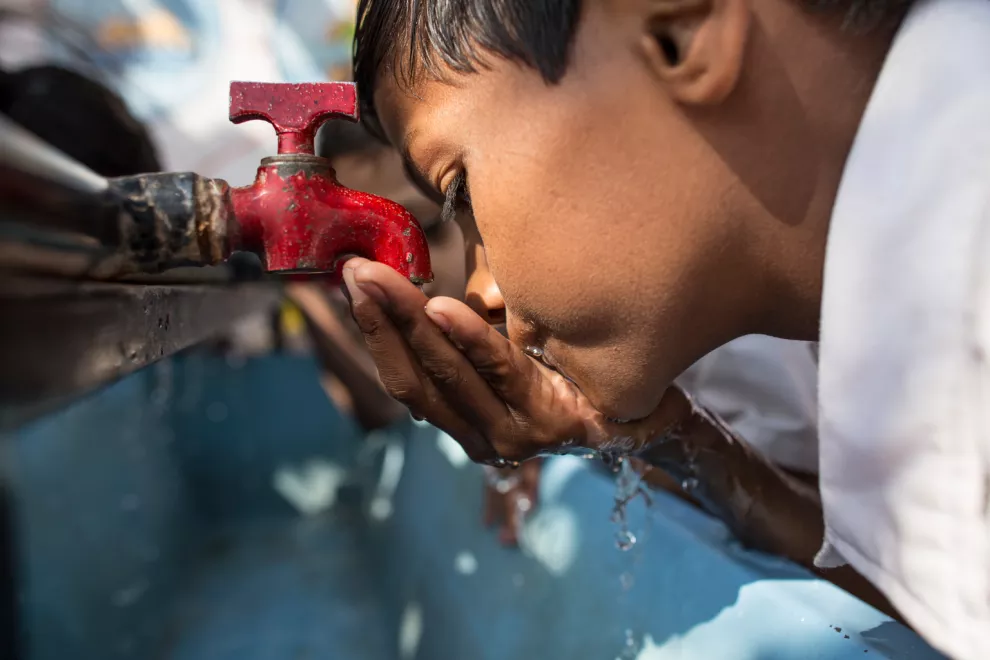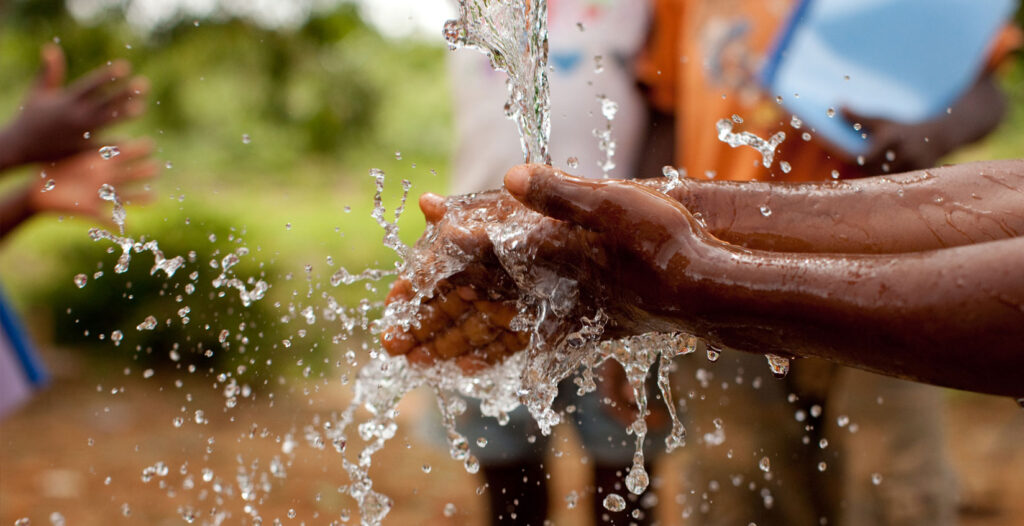
Clean Water for All
Clean Water for All: A Global Imperative Through Yazi Foundation
Introduction
Access to clean and safe drinking water is one of the most fundamental human rights, yet billions of people worldwide are deprived of this essential resource. Water scarcity, contamination, and lack of infrastructure are some of the many challenges that affect global communities. At Yazi Foundation, we believe that access to clean water should be universal, and our mission is to lead efforts in ensuring that everyone, regardless of their location or socio-economic status, has access to this basic necessity.
In this article, we will explore the importance of clean water, the global water crisis, the impact of waterborne diseases, and how Yazi Foundation is spearheading projects that aim to provide clean water to vulnerable populations.
Table of Content
- Introduction
- The Importance of Clean Water
- Water and Health
- Water and Education
- Water and Agriculture
- The Global Water Crisis
- Water Scarcity
- Water Pollution
- Climate Change and Water
- The Role of Yazi Foundation in Addressing the Water Crisis
- Building Clean Water Infrastructure
- Water Education and Hygiene Promotion
- Advocacy and Policy Change
- Yazi Foundation’s Impact
- Conclusion
The Importance of Clean Water
Water is the lifeblood of ecosystems, communities, and economies. Beyond just hydration, water plays a crucial role in maintaining human health, supporting agriculture, and sustaining wildlife. Without adequate access to clean water, individuals are susceptible to a range of waterborne diseases, sanitation challenges, and food insecurity. Clean water is also a key to educational success, as children who lack access to this resource are more likely to miss school due to illness or the need to collect water from distant sources.
Water and Health
Clean water is essential for human health. Unsafe water sources are breeding grounds for a variety of waterborne diseases, including cholera, dysentery, typhoid, and diarrhea. According to the World Health Organization (WHO), contaminated drinking water is responsible for more than 485,000 deaths annually. Diarrhea alone claims the lives of 829,000 people every year, many of whom are children under the age of five.
Access to clean water can prevent these diseases and reduce healthcare costs for families and communities. Improved water quality is directly linked to lower mortality rates, better overall health, and increased life expectancy. The provision of safe drinking water helps communities focus on economic growth, education, and development, instead of spending time and resources battling preventable diseases.
Water and Education
For many children around the world, the task of fetching water becomes a daily routine that prevents them from attending school. Young girls are often the most affected, as they are tasked with walking long distances to gather water for their families. This not only deprives them of education but also exposes them to potential dangers such as sexual harassment and violence.
When clean water is available locally, children are freed from this time-consuming and physically demanding responsibility. They can attend school regularly and focus on their studies, giving them the opportunity for a better future. Additionally, schools with access to clean water and proper sanitation facilities create a safer and more conducive environment for learning. Water security is a key enabler for educational success, and the long-term benefits ripple through entire communities.
Water and Agriculture
Water is not only vital for human consumption but also for agriculture, which sustains billions of people worldwide. In many parts of the world, smallholder farmers rely on rainfall and local water sources to irrigate their crops. Without access to clean and reliable water, food production becomes unpredictable, leading to food insecurity, malnutrition, and poverty.
By improving access to clean water for irrigation, Yazi Foundation is helping communities increase their agricultural productivity and resilience. In many regions where we work, reliable irrigation systems allow farmers to grow crops year-round, improving food security and generating income for families. Water-efficient farming practices also contribute to environmental sustainability, helping communities conserve water and protect local ecosystems.
The Global Water Crisis
Despite water’s importance, the world is currently facing a severe water crisis. According to the United Nations, approximately 2.2 billion people lack access to safely managed drinking water services, and 4.2 billion people are without safely managed sanitation services. The situation is further exacerbated by climate change, population growth, urbanization, and the over-extraction of water resources.
Water Scarcity
Water scarcity affects over 40% of the world’s population, and the numbers are expected to rise in the coming decades. In many regions, water demand exceeds supply, and this imbalance has been worsened by environmental degradation, mismanagement of resources, and climate change. Freshwater sources such as rivers, lakes, and aquifers are drying up or becoming too polluted to use, leaving millions of people without access to clean water.
In sub-Saharan Africa and parts of Asia, water scarcity is a daily reality. Families often spend hours walking to the nearest water source, and the water they collect is frequently contaminated. Water scarcity also impacts hygiene and sanitation, as people have to choose between drinking water and using it for basic sanitation needs.
Water Pollution
Water pollution is another significant threat to global water security. Industrial waste, agricultural runoff, and improper disposal of waste contribute to the contamination of freshwater sources. In many developing countries, untreated sewage and industrial waste are discharged into rivers and lakes, polluting the very water that people depend on for drinking, cooking, and cleaning.
Polluted water sources are not only hazardous to human health but also to the environment. Aquatic ecosystems suffer, biodiversity declines, and toxic chemicals enter the food chain. As industries continue to grow and urban populations expand, the need for effective water management and pollution control becomes increasingly urgent.

Climate Change and Water
Climate change is dramatically altering the global water landscape. Rising temperatures, changing precipitation patterns, and extreme weather events such as droughts and floods are intensifying water stress. Many regions are experiencing prolonged periods of drought, which diminish water supplies and threaten food security. Conversely, heavy rains and floods can overwhelm infrastructure, contaminating water sources and displacing communities.
The impacts of climate change on water availability are particularly pronounced in low-income countries, where resources for adaptation are limited. These challenges underscore the importance of climate-resilient water management and infrastructure development, which are key priorities for Yazi Foundation.
The Role of Yazi Foundation in Addressing the Water Crisis
At Yazi Foundation, we are committed to tackling the global water crisis through innovative, sustainable, and community-driven solutions. Our mission is to ensure that everyone, regardless of location or income, has access to clean, safe drinking water. We achieve this through a combination of clean water infrastructure projects, water education programs, and advocacy for water rights and policy change.
Building Clean Water Infrastructure
One of the core ways Yazi Foundation addresses water scarcity is by building and rehabilitating water infrastructure in underserved communities. We work in partnership with local governments, organizations, and communities to design and implement projects that provide clean water to those in need. Our projects include the construction of wells, boreholes, rainwater harvesting systems, and water purification stations.
Each project is tailored to the specific needs and context of the community. In areas with scarce groundwater resources, we focus on rainwater harvesting and storage. In communities with contaminated water sources, we provide filtration systems and sanitation facilities to ensure safe drinking water. We also train local water committees to manage and maintain the systems, ensuring the long-term sustainability of the projects.
Water Education and Hygiene Promotion
Access to clean water is only part of the solution. Equally important is educating communities about the importance of hygiene and sanitation practices. Yazi Foundation implements comprehensive water, sanitation, and hygiene (WASH) programs that focus on handwashing, safe water storage, and the proper use of sanitation facilities.
Our WASH programs are designed to reduce the spread of waterborne diseases and improve overall community health. We work closely with schools, healthcare centers, and community leaders to deliver interactive workshops, demonstrations, and materials that promote good hygiene practices. By empowering individuals with knowledge and tools, we enable them to take control of their own health and well-being.
Advocacy and Policy Change
In addition to direct interventions, Yazi Foundation advocates for policy changes that prioritize water security at the local, national, and international levels. We collaborate with governments, NGOs, and international organizations to push for stronger water management policies, investment in infrastructure, and enforcement of environmental regulations.
Water is often a political issue, and many marginalized communities lack the political power to advocate for their water rights. Yazi Foundation works to amplify their voices and ensure that water access is recognized as a fundamental human right. Through our advocacy efforts, we aim to influence policies that promote equitable and sustainable access to water for all.
Yazi Foundation’s Impact
Since its inception, Yazi Foundation has made significant strides in providing clean water to vulnerable populations. We have partnered with communities in regions suffering from extreme water scarcity, helping to transform their lives through sustainable water solutions. Our projects have brought clean water to schools, healthcare centers, and households, improving health, education, and livelihoods.
In rural areas of sub-Saharan Africa, for example, our borehole projects have reduced the time women and children spend collecting water, allowing them to pursue education and income-generating activities. In India, our water purification stations have provided safe drinking water to thousands of families, reducing the incidence of waterborne diseases. In Southeast Asia, our rainwater harvesting systems have helped farming communities become more resilient to droughts, ensuring food security even in dry seasons.
Conclusion
Water is life, and access to clean water is a right that should be afforded to everyone, regardless of where they live. At Yazi Foundation, we are dedicated to making this a reality by providing sustainable solutions to the global water crisis. Our work is driven by a commitment to social justice, environmental sustainability, and community empowerment.
We believe that by working together—governments, organizations, and individuals—we can achieve clean water for all. The path to universal water access may be challenging, but it is not impossible. With the support of our partners and donors, Yazi Foundation will continue to expand its efforts to reach even more communities, bringing hope and opportunity to those most in need. Together, we can create a future where clean water is not a privilege but a fundamental right for all.
